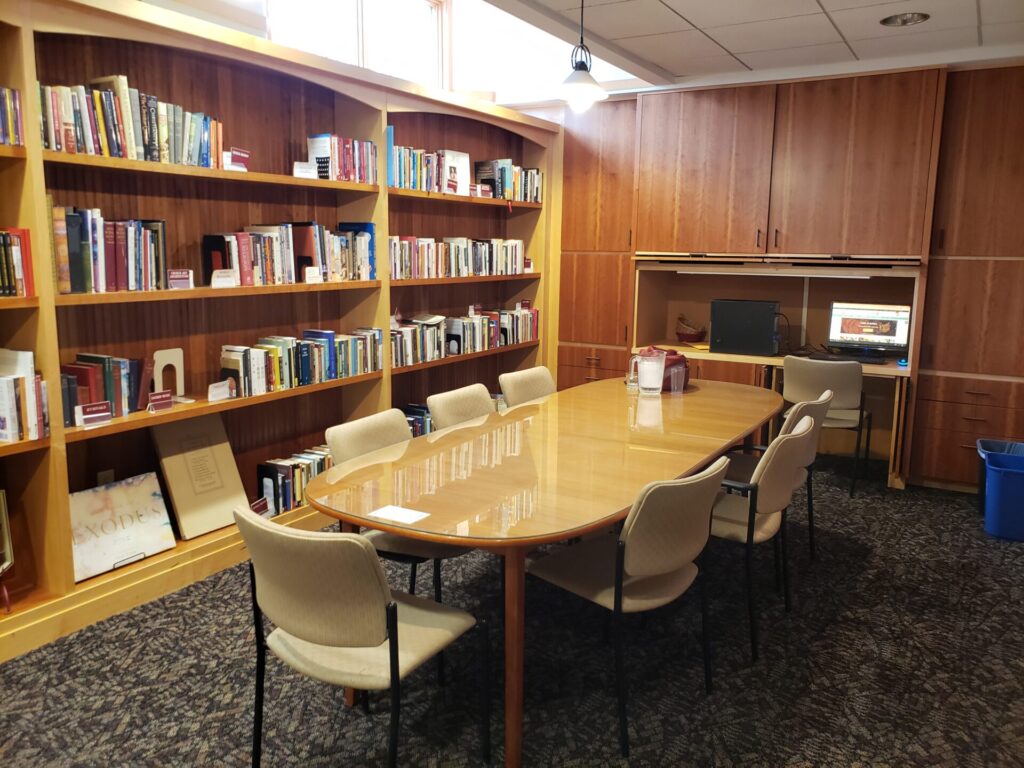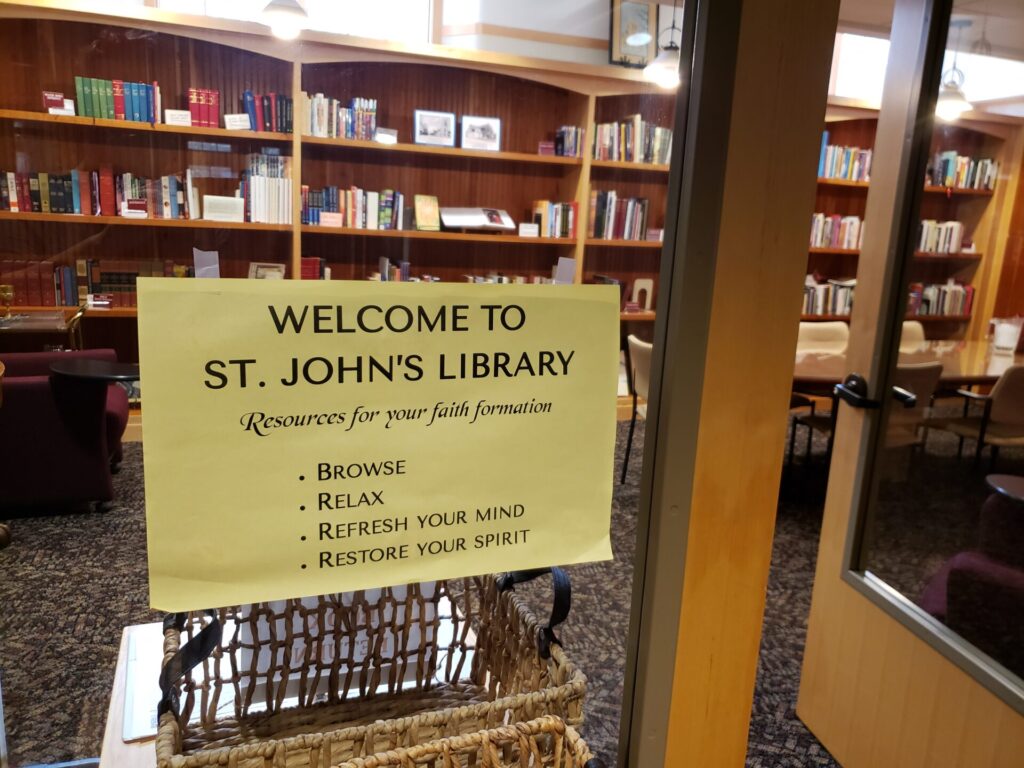Have You “Checked Out” the Library?
by Ebby Watkins
Since returning to the office from teleworking, my work station has been in the church office. But now that our new, awesome administrative assistant Gabriel Johnson is also working in the church office reguarly—and all the other offices are already occupied—my work station has moved down into the Library.

Now, while this is another indication of some of the ways our vibrant church has outgrown its space (which might be addressed by a capital campaign in the future?) I’m not here to complain. It’s a lovely room, quiet and cool in the summer, and one that I’ll confess I had kind of forgotten about for a while. That’s a shame, because it has so much to offer!
St. John’s has had a library for a very long time, but its current inviting, easy-to-use iteration began back in October 2016. The Formation Commission held their meetings in the Library and all the mixed-up piles of books were bothersome to the trio of librarians in the group: Judy Stack, who had been a student library worker at Luther Seminary; Terry Dinovo, who had worked in the rare books collection at Luther Seminary; and the late and much-beloved Diane Wallace-Reid, who was a retired school librarian. Judy, Terry, and Diane all put in a LOT of work over many months to reorganize the collection and turn it into a rich resource for both intellectual and spiritual development. “I often lead faith formation,” said Judy in a 2017 Evangelist article, “and afterwards people will ask, ‘Where can I learn more about __?’ And when St. John’s created our strategic plan, we decided that formation needs to be a priority. We hope the library can be a strong support to formation, both educational and devotional.”

Over the coming months I’ll be writing some more E-vangelist posts to highlight the different topics and titles the Library has to offer. If you’d like to check out a book or just “check out” the Library, it’s open whenever the church office is open this summer: Sunday 8:30-noon, and Monday/Wednesday/Thursday/Friday 9am-4pm. Just stop by the office to get access to the lower level.

